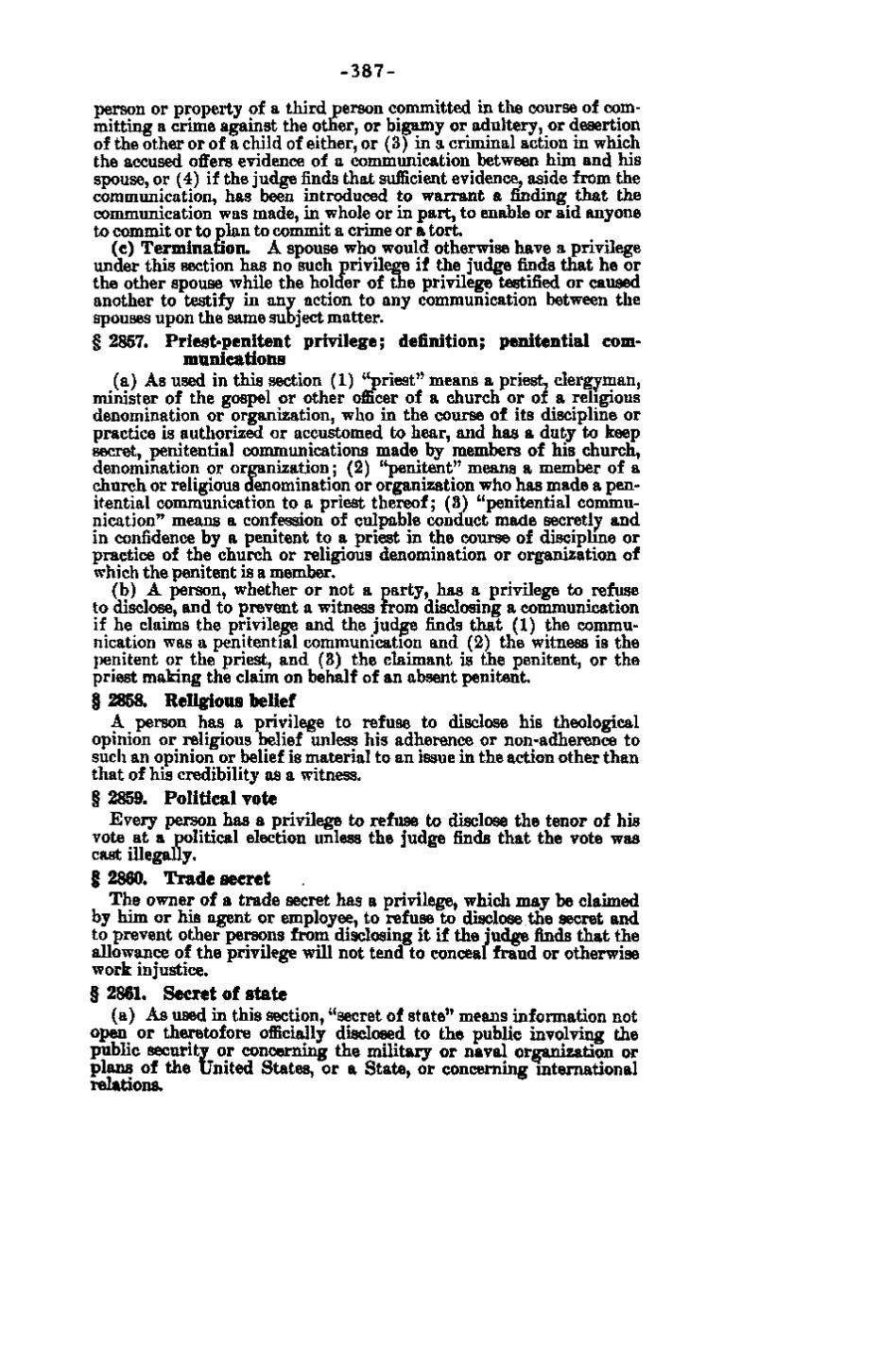–387–
-387person or property of a third person committed in the course of committing a crime against the other, or bigamy or adultery, or desertion of the other or of a child of either, or (3) in a criminal action in which the accused offers evidence of a communication between him and his spouse, or (4) if the judge finds that sufficient evidence, aside from the communication, has been introduced to warrant a finding that the communication was made, in whole or in part, to enable or aid anyone to commit or to plan to commit a crime or a tort. (c) Termination. A spouse who would otherwise have a privilege under this section has no such privilege if the judge finds that he or the other spouse while the holder of the privilege testified or caused another to testify in any action to any communication between the spouses upon the same subject matter. § 2857. Priest-penitent privilege; definition; penitential communications (a) As used in this section (1) "priest" means a priest, clergyman, minister of the gospel or other officer of a church or of a religious denomination or organization, who in the course of its discipline or practice is authorized or accustomed to hear, and has a duty to keep secret, penitential communications made by members of his church, denomination or organization; (2) "penitent" means a member of a church or religious denomination or organization who has made a penitential communication to a priest thereof; (3) "penitential communication" means a confession of culpable conduct made secretly and in confidence by a penitent to a priest in the course of disciphne or practice of the church or religious denomination or organization of which the penitent is a member. (b) A person, whether or not a party, has a privilege to refuse to disclose, and to prevent a witness from disclosing a communication if he claims the privilege and the judge finds that (1) the communication was a penitential communication and (2) the witness is the penitent or the priest, and (3) the claimant is the penitent, or the priest making the claim on behalf of an absent penitent. § 2858. Religious belief A person has a privilege to refuse to disclose his theological opinion or religious belief unless his adherence or non-adherence to such an opinion or belief is material to an issue in the action other than that of his credibility as a witness. § 2859. Political vote Every person has a privilege to refuse to disclose the tenor of his vote at a political election unless the judge finds that the vote was cast illegally. § 2860. Trade secret The owner of a trade secret has a privilege, which may be claimed by him or his agent or employee, to refuse to disclose the secret and to prevent other persons from disclosing it if the judge finds that the allowance of the privilege will not tend to conceal fraud or otherwise work injustice. § 2861. Secret of state (a) As used in this section, "secret of state" means information not open or theretofore officially disclosed to the public involving the public security or concerning the military or naval organization or plans of the United States, or a State, or concerning international relations.
�
